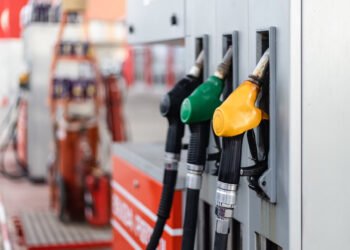Africa’s energy sector is experiencing a transformative shift as investment in clean energy surges to unprecedented levels. According to the International Energy Agency (IEA), clean energy investments across the continent reached a record $36.6 billion in 2023, marking a 12% increase from the previous year.
This surge underscores the growing momentum toward renewables as Africa embraces sustainable solutions to its energy challenges after years of stagnation. Renewable energy has emerged as a cornerstone of Africa’s energy strategy, with investments nearly doubling over the past five years.
“Growth has been hard-won amid high debt levels and steep capital costs. Still, the cost of renewable energy across Africa is consistently undercutting other generation sources,” the IEA noted in its latest report.
Concurrently, investments aimed at improving electricity access have increased by 30%, reflecting a growing focus on bridging the energy access gap. However, these gains have not come easily. High debt levels and steep capital costs remain significant hurdles.
Despite these challenges, renewable energy sources, particularly solar photovoltaic (PV), have consistently demonstrated cost advantages over other forms of electricity generation, driving a wave of new projects across the continent.
“In 2023, the number of people lacking electricity access dropped from 607 million to around 603 million.
“A surge in solar home systems (SHS), which sold 2.5 times more than in 2019, played a vital role in bridging this gap.”
International Energy Agency (IEA)
The IEA projected an optimistic outlook for 2024, with investments in clean energy and electricity access expected to surpass $40 billion.
“And the outlook is promising. New projects in clean energy and electricity access indicate a sustained upward trajectory, with early estimates for 2024 predicting investments may surpass $40 billion.”
International Energy Agency (IEA)
However, to fully meet Africa’s energy access and climate goals, the continent must triple its current levels of power sector investment over the same period.
Unlocking the Power of the Private Sector

Private sector involvement is increasingly recognized as a critical driver of clean energy investment in Africa. Historically, less than half of clean energy investments on the continent have come from private sources. However, this trend is beginning to shift.
Initiatives like Power Africa are helping to unlock private investment by providing technical assistance and facilitating deals that would otherwise struggle to materialize. “For most developing countries, the greatest hurdle is financing their first deals,” the IEA explained.
“Many countries face structural challenges in developing ‘bankable’ projects capable of attracting private investment.
“For more mature energy markets within sub-Saharan Africa, the high cost of capital remains a formidable challenge.”
International Energy Agency (IEA)
To address these challenges, tools like the IEA’s Cost of Capital Observatory are providing greater transparency around financing conditions and risks across the continent.
Innovative models are emerging to reduce financing costs and improve access to capital. For example, Africa GreenCo, operating in Zambia with the support of Power Africa, aggregates electricity buyers such as utilities and industrial customers.
“Increasing concessional finance from international sources is also crucial,” the IEA emphasized. By 2035, an estimated $35 billion in concessional energy finance will be required to catalyze the private sector investments needed to meet Africa’s climate and energy access goals.
Africa’s clean energy momentum is real and growing, signaling an unprecedented opportunity to transform the continent’s energy landscape. With international support, the potential for a fair and sustainable energy transition has never been greater.
“This is the moment to shift Africa’s energy trajectory, bringing affordable and sustainable energy within reach for all, and setting a precedent for clean energy transitions across the globe,” the IEA stated.
Africa’s energy future is at a pivotal juncture. By harnessing the growing momentum in clean energy investment, the continent has an opportunity to achieve its energy access and climate objectives while setting an example for sustainable development worldwide.
The challenge ahead requires a concerted effort to address financing barriers, scale up concessional funding, and unlock the full potential of private sector participation.
With continued international collaboration and support, Africa can chart a path toward a brighter, more sustainable energy future for all.
REA ALSO: Zuma’s Bold Move Reshapes South Africa’s Political Landscape























